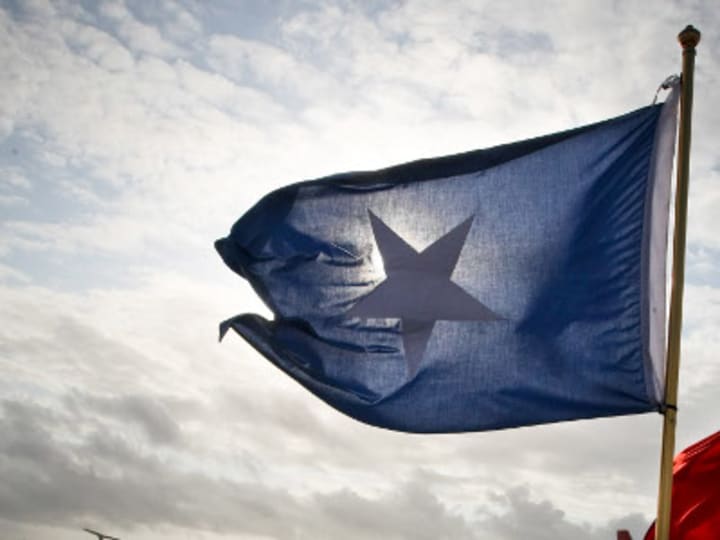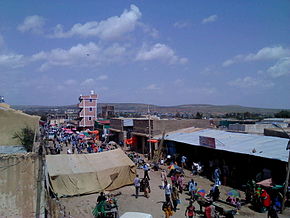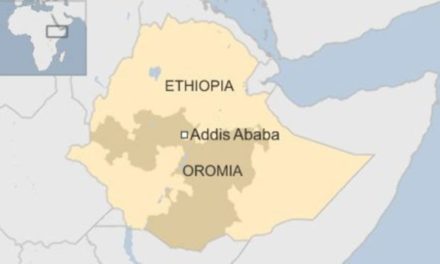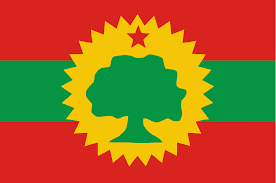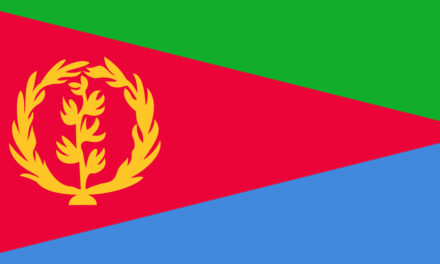To: President of the Federal Government of Somalia H.E. Mohamed Abdullahi Farmaajo
To: Special Representative of the UN. Secretary-General for Somalia Amb. James Swan
CC: International Communities
July 1, 2020
It has been thirty years since the first Manifesto was released and published in May 1990, at a time when Somalia was on the cusp of disintegration and when state collapse was in the hands of an autocratic ruler who had refused to listen to the voices of the nation, and the nation was in eminent state. Soon after Manifesto 1 was published, Somalia erupted, and a consequential collapse of the Somali Democratic Republic ensued from which it has yet to recover. Thirty years later, the same conditions prevail in the country. There is an impasse on many key political issues resulting in a growing dissatisfaction by the Somali people, who are extremely worried about the direction of the country.
We believe no Somali citizen can any longer look away from the ominous threat or a sense of doom that hang over the country today. Thirty years after the collapse of Somalia’s central government, the country is at a critical juncture as dark clouds had gathered around the election cycle and the country’s succession to a new government is being manipulated. The uncertainty surrounding the parliamentary and presidential elections for 2020/21, just four months before the term of the current parliament and less than eight months before the term of the President expires, is particularly deeply troubling. Elections are fundamental rights enshrined in our country’s legal and constitutional framework. They are also crucial to facilitating peaceful and democratic transfers of power from one government to the next, as has happened since the Transitional National Government was created at the Arta peace process, Djibouti in 2000 to the 2017 transfer of power where the current administration of the Federal Government of Somalia was created.
The government of President Mohamed Abdullahi Farmaajo has failed to 1) build stability and the institutions required for good governance, including an integrated national army capable of securing the country, and an effective police force responsible for protecting the lives, properties, peace, and security of its citizens; 2) establish the independence, effectiveness and accountability of legislative, judiciary and executive branches of government 3) address corruption and lack of transparency in government; 4) review and amend the provisional constitution and submit it for approval in a national referendum; 5) establish a constitutional court to adjudicate on constitutional matters; and 6) ) institute a rule of law reform to foster a government bound by law, justice, equality before the law and respect for human rights. Moreover, the government entered secret or undisclosed international treaties without parliamentary authorization through standard legislative procedures. The lack of progress in completing the necessary federal structures and processes, as well as its utter failure in fostering meaningful, coherent, and realistic plan for the talks with Somaliland is a retardation to rehabilitate Somalia.
The failure of the FGS in its core functions constitutes a severe impediment to the trust the Somali people placed on their government. The Somali people lack access to basic services and infrastructure. Extreme poverty and hunger are widespread. More than 70% of the Somali people live below the international poverty line. Somalia is the 185th out of 189 countries in terms of poverty rate. There is a widespread unemployment which affects above 70 percent of the population. Sadly, the young people are the largest demographic cohort and they are the most affected group. Over 75 percent of the young has no access to opportunities for education or employment, and hence face multiple social, economic, and political exclusions. More than one million Somali people are refugees, while 2.6 million IDPs have been displaced by conflict, insecurity and/or drought, and are currently living in about 2,000 IDP sites across Somalia. These are many people in need with critical problems related to physical and mental wellbeing, living standards, as well as lacking protection for their safety and security, and most of them are children.
The constitutionally agreed structure based on a federal system of government has been completely derailed by this administration. The country is being run by a small group of people who do not accept the principle of plurality as normal elements of politics, hence rejecting inclusive political settlements, therefore continuously behaving as though they have no constitutional responsibility to the citizens living in Federal Member States (FMS) and their institutions. The political parties and their leaders, FMS, intellectuals and civil society organizations, ordinary citizens and members of the international community have all loudly voiced their concerns about this turn of events. The country is at a critical juncture and the worsening relations between FGS and the FMS have meant that al-Shabaab remains lodged in vast swathes of the country, whereas the opposite could have been achieved were the FGS not engaged in exclusionary political power games at the expense of FMS institutions.
For all the above reasons, we, the undersigned, are deeply disturbed by the exclusionary and incoherent political and security approaches to governance by the leaders of the FGS. The exclusive devotion to a particular set of interests with no regard for other people’s views, the corruption, mismanagement, and the arrogance of the FGS leaders have resulted in a complete failure of all internal Somali-owned political processes that are necessary to move the country forward, and especially to the most urgent priority which is to agree on a realistic and practically implementable plan for elections within the constitutionally required time frame.
We call on all Somali people to support this Manifesto so that our country can avoid the dark storm clouds looming on the horizon once again. We also appeal to the government of President Mohamed Abdullahi Farmaajo, FMS Presidents, opposition parties, and civil society organizations:
- To act in accordance with the Provisional Constitution as the rule of the land and the Federal system established by the constitution
- Come together and build consensus (political agreement) on the most pressing issue at hand which are the constitutionally required elections for 2020/2021 and
- Hold elections as scheduled and without any delay.
List of Signatories
| 1.Jaamac Cali Jaamac- Ex Manifesto 1 |
| 2. Avv. Xasan Dhimbil Warsame Ex Manifesto 1 |
| 3.Cabdi Muuse Mayow, |
| 4. Cabdullaahi Xaaji Yuusuf Cigaal, Ex- Manifesto 1 |
| 5. Xirsi Bulxan Faarax Wasiir hore , 1967 |
| 6. Cali Cabdullaahi Cosable, Madaxweyne hore, Hirshabeelle |
| 7. Faysal Cabdi Rooble |
| 8. Gen. Maxamed Cusmaan Qaadi |
| 9. Avv. Maxamed Macallin Xasan (Marooko) |
| 10. Caasha Geelle Diiriye, Wasiir hore, Puntland |
| 11. Eng. Axmed Warsame Abtidoon |
| 12. Bashiir Ciise Cali, Gud. Hore Bangiga Dhexe, Soomaaliya |
| 13. Avv. Maxamed Maxamuud Ciise (Turunji) |
| 14. Cabdi Faarax Siciid (Juxa), Wasiir hore, DFS |
| 15. Dr. Xasan Sheekh Cali |
| 16. Avv. Shamso Sheekh Xasan |
| 17. Raage Garaad Cabdiqani Garaad Jaamac |
| 18. Eng. Ismaaciil Daahir Cismaan |
| 19. Cabdullaahi Xasan Maxamed (Isbaanish) |
| 20. Dr. Cabdirashiid Cabdullaahi Maxamed (Foonka) |
| 21. Cabdirisaaq Cumar Maxamed, Wasiir hore, DFS |
| 22. Eng. Axmed Sabriye Siyaad |
| 23. Dr. Cabdicasiis Maxamuud Maxamed (Takar) |
| 24. Cabdiraxiim Maxamed Abshir Haamaan |
| 25. Maxamuud Xaaji Qore, Ex- Manifesto 1 |
| 26. G/ Sare Maxamed Xasan Xaaji Xuseen |
| 27. Cabdulqaadir Nuur Salaad (Takar) |
| 28. Abuukar Maxamed Cali |
| 29.Maxamed Macallin Xasan Geelle, Xildhibaan hore |
| 30. Dr. Aweys Cumar Maxamed |
| 31. Khaliif Jaamac Cabdulle (Mandella) |
| 32. Maxamuud Dhoollawaa, Wasiir hore Puntland, |
| 33. Cabdi-Kaaf Maxamed Maxamuud, Wasiir hore, Galmudug |
| 34. Axmed Cabaas Axmed |
| 35. Avv. Cabdiraxmaan Faarax Qaarey |
| 36. Faarax Cali-Shire Afbalaar, Wasiir hore, Puntland |
| 37. Eng. Cabdi-Nuur Axmed Darmaan |
| 38. Daahir Mire Jibriil |
| 39. Eng. Siciid Xaaji Cabdi |
| 40. Eng. Cabdi-Waaxid Axmed Xasan |
| 41. Dr. Cumar Cabdi Barre |
| 42. Dr. Aadan Maxamed Ciise |
| 43. Xasan Cismaan Xaashi (Sulux) |
| 44. Dr. Xirsi Cabdi Cismaan |
| 45. Dr. Siciid Maxamed Maxamuud |
| 46. Dr. Axmed Cabdalla |
| 47. Dr. Cabdiraxmaan Cumar Warsame |
| 48.Dr. Cabdiraxmaan Axmed Nuur (Sulub) |
| 49. Prof. Cabdullaahi Sayid Axmed |
| 50. Prof. Asad khaliif Cali-weyd |
| 51. Prof. Cabdisalaam Xaaji Axmed Garaad Malla |
| 52. Prof. Cabdisalaam Ciise Salwe |
| 53. Dr. Bashiir Cali Biixi |
| 54. Dr. Faarax Axmed Warsame |
| 55. Dr. Jibriil Axmed Yuusuf |
| 56. Dr. Axmed Cali Yuusuf |
| 57.Dr. Maxamed Ibraahim Af-kul |
| 58. Dr. Maxamed Xuseen Aadan |
| 59. Dr. Cali Caddaawe Barkhadle |
| 60. Amb. Yusuf Xaaji Siciid |
| 61. Amb. Cabdikariim Aw-Cali |
| 62. Mahad Maxamed Warsame |
| 63. Ismaaciil Xaaji Warsame |
| 64. Ciise Dhoolawaa |
| 65. Maxamed Cabdiraxmaan Janagele |
| 66. Axmed Siyaad Bile |
| 67. Cabdullaahi Saalax Cismaan |
| 68. Cabdiwaaxid Axmed Jaamac |
| 69. Dr. Saadiq Eenow |
| 70. Cabdikarim C/raxmaan X. Xasan |

